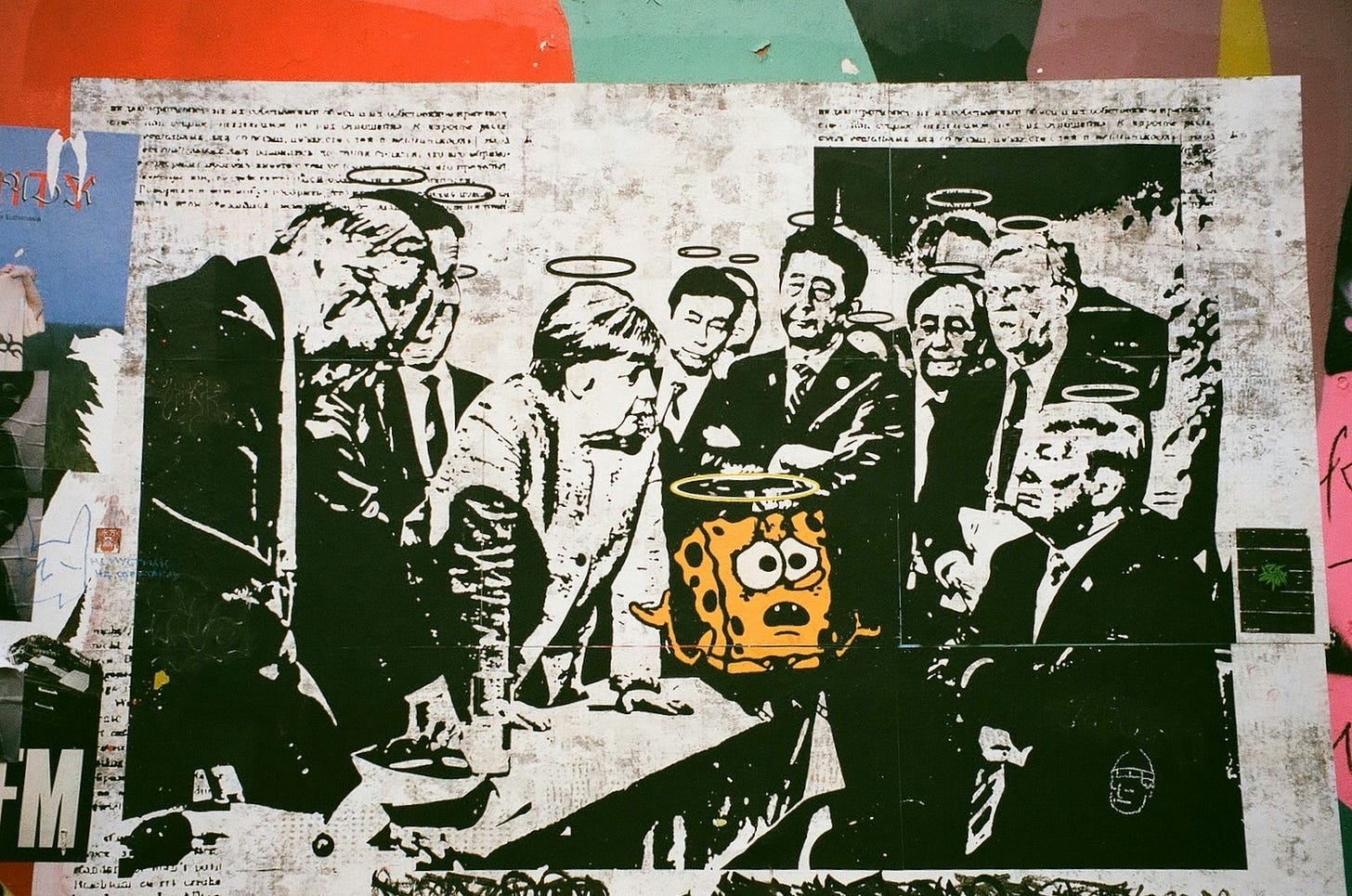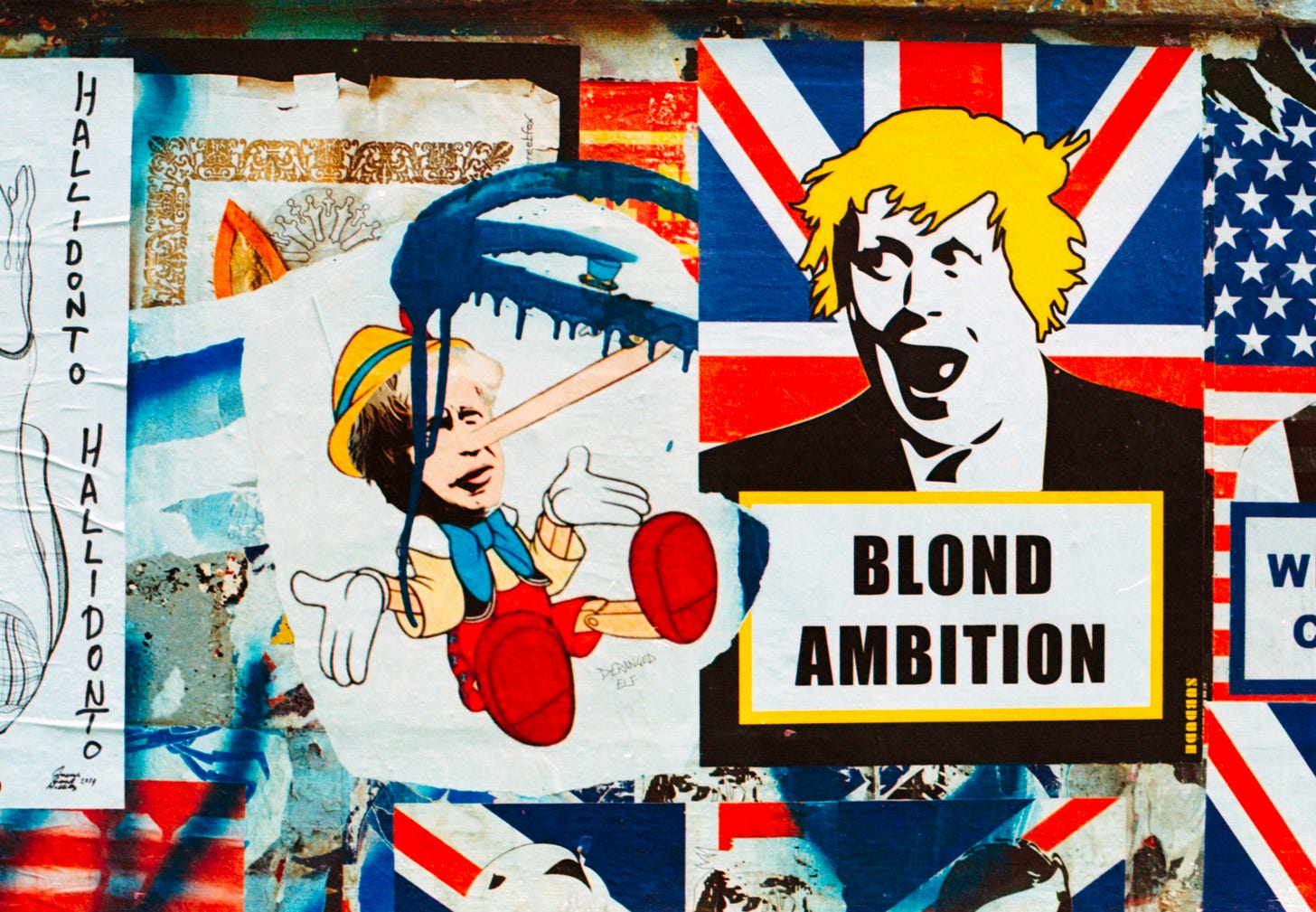For decades it’s been a truism—verging on a cliché—to point out that much of the media skews liberal. And there’s plenty of truth to that claim. It’s hard to imagine many famous Hollywood actors, pop stars, even novelists, espousing explicitly conservative views. Chappel Roan says immigration levels are too high; Timothée Chalamet backs abortion bans; Reese Witherspoon blasts Kamala Harris’s socialist agenda. Each of these could be satirical headlines pulled from The Onion. There are exceptions, like Kanye West—though his political realignment is probably better understood as a symptom of mental illness—or Michel Houellebecq, but they are the exceptions to a pretty steadfast rule.
And when it comes to news and commentary, The New York Times, the BBC, and The Guardian are regularly decried for being smug, out-of-touch, and hopelessly narrow-minded. What critics of the “liberal elite” often fail to recognise, though, is that their complaint is both outdated and myopic. Broad sections of newer media, much of it online, are now anti-liberal—if not trenchantly alt-right and conspiratorial. While the tone of these newer media properties can vary wildly, they’re united in their antipathy towards the left specifically, and liberalism more generally. Hipster podcast, Red Scare, tradwife content on Instagram, the Triggernometry duo’s increasingly unhinged interviews, and Jordan Peterson’s wilfully arcane YouTube monologues, may not strike you as particularly similar. But each of these defines themselves against the prevailing orthodoxies of liberalism and—just as crucially—pitch themselves as counter-cultural.
At first glance, this trendy anti-liberalism might seem like a conservative revival. What’s changed, though, is the style and tools being deployed. Sarcasm, edgy humour, “just asking questions”, plausible deniability, a creepy obsession with IQ, free speech absolutism, and anti-vax conspiracies are some of the most obvious. Curiously, many of the most prominent advocates of what’s been called the “neo-right” disavow the label of conservatism, preferring designations like “classical liberal”. Of course, classical liberalism has a long and venerable history but we’re not talking John Stuart Mill here. In this context, the term is at best a pose and, at worst, a euphemism.
This is a trick, a sleight of hand. Renounce—or appear to—traditional political labels; claim you have no tribe; position yourself above the fray, and it’s much harder to be pinned down, or even criticised. I’m not suggesting everybody’s beliefs fall neatly into prescribed political camps, but if almost everything you say chimes with, say, Nigel Farage’s worldview, it’s simply disingenuous to claim to be an objective, impartial, political centrist.
Shortly after Donald Trump’s re-election last year, The New Yorker published a salutary essay by Jia Tolentino in which she describes the fringes of the modern American right as “irony-poisoned”. The grim, repurposed slogan, “Your Body My Choice”, began circulating on social media in the aftermath of the campaign. As Tolentino tells it, “everything started with a tweet from Nick Fuentes, a twenty-six-year-old streamer and self-described ‘proud incel’ who, beneath a hard veneer of something that’s supposed to seem like irony, regularly praises Hitler, and has expressed his desire for ‘Catholic Taliban rule’ in America”.1 It’s tempting to think the extremism found online—now more than ever—tells us very little about how people behave in the real world. But, as Tolentino puts it, “on the one hand, we should be wary of reducing the world to what people are posting on social media. On the other hand, posting now creates political reality.”
The roots of this movement lie in the “Intellectual Dark Web”—a loose coalition of media personalities and thinkers who were profiled by Bari Weiss in The New York Times in 2018—but the associated worldview is transparently much older. To my mind, it was Christopher Hitchens who popularised the mode of discussion favoured by the new right, though he shared very little of their politics. An extremely gifted speaker, he helped reinvigorate the popularity of public debate, especially among young people. Whatever you think of figures like Hitchens, Sam Harris, and Richard Dawkins, they’re at least serious intellectuals. This often can’t be said of the people they have influenced. What we’re left with is a bunch of nuance-fetishists who share a belief that civilisation itself can be salvaged by having meandering conversations in artfully lit warehouses. Think Konstantin Kisin, Andrew Gold or Joe Rogan. (They’re mostly men—though Louise Perry, Mary Harington and Ayaan Hirsi Ali might also be included under this umbrella).
A recent piece in Prospect by the always excellent James Bloodworth sheds light on another prominent anti-woke careerist, Douglas Murray. Murray’s books, such as The Strange Death of Europe and The Madness of Crowds, sell in huge numbers despite—or perhaps because of—arguments that are as glib as they are incendiary. This is a man who has openly stated that “conditions for Muslims in Europe must be made harder across the board” and has called for a halt to “all immigration into Europe from Muslim countries.” As Bloodworth writes, “[In Murray’s] culture war, the opposition trenches are largely manned by straw men.”2 Murray’s rhetorical flair—and there’s plenty of style but little substance—masks a persistent failure to genuinely engage with the complexities of the issues he addresses. His impact on culture and politics is particularly insidious; his ability to blend erudition with grievance especially noxious.
The backdrop to all of this, of course, is that the far right is ascendant. Calls for mass deportations are now commonplace, while edgy pundits discuss the great replacement theory without embarrassment. The people—like Kisin, Chris Williamson, Dave Rubin—who regularly host advocates of the new right are laundering these dangerous, extreme ideas. Look at what’s been happening on Twitter recently: it’s awash with racism. And I don’t even mean the kind you might overhear in an unsavoury home counties pub; this is violent, blood-and-soil, ethnonationalism.
The “new gurus”, as Helen Lewis has called this new crop of political influencers, will need more than a dose of irony and a flimsy mantra about the “marketplace of ideas” if they want to put some distance between themselves and the swamp of extremism that’s infected right-wing politics—both in the UK and further afield.
The alt-right has morphed, metastasised, and gained alarming traction in what we used to call “the public square”. And how this battalion of culture warriors, many of whom are now extremely wealthy, responds will be very telling.
https://www.newyorker.com/news/the-lede/your-body-my-choice-a-new-rallying-cry-for-the-irony-poisoned-right
https://www.prospectmagazine.co.uk/ideas/philosophy/intellectuals-and-ideas/68743/douglas-murray-saving-the-west-musk-trump






As you hint in your final paragraph these culture warriors might well be putting themselves in an excruciating moral predicament if the far right ever enacts some of this online "irony" such as depriving Muslims of rights or actually organising mass deportations. What would they say then? Go all in - "we meant it after all!". Or run from responsibility - "we never really meant anything!" In most cases I suppose it will be the latter.
It gets ever more hysterical on both ends of the so called spectrum to be fair.
There’s the real world and there’s the social media podcast world, one of them gives me way more cheap dopamine hits